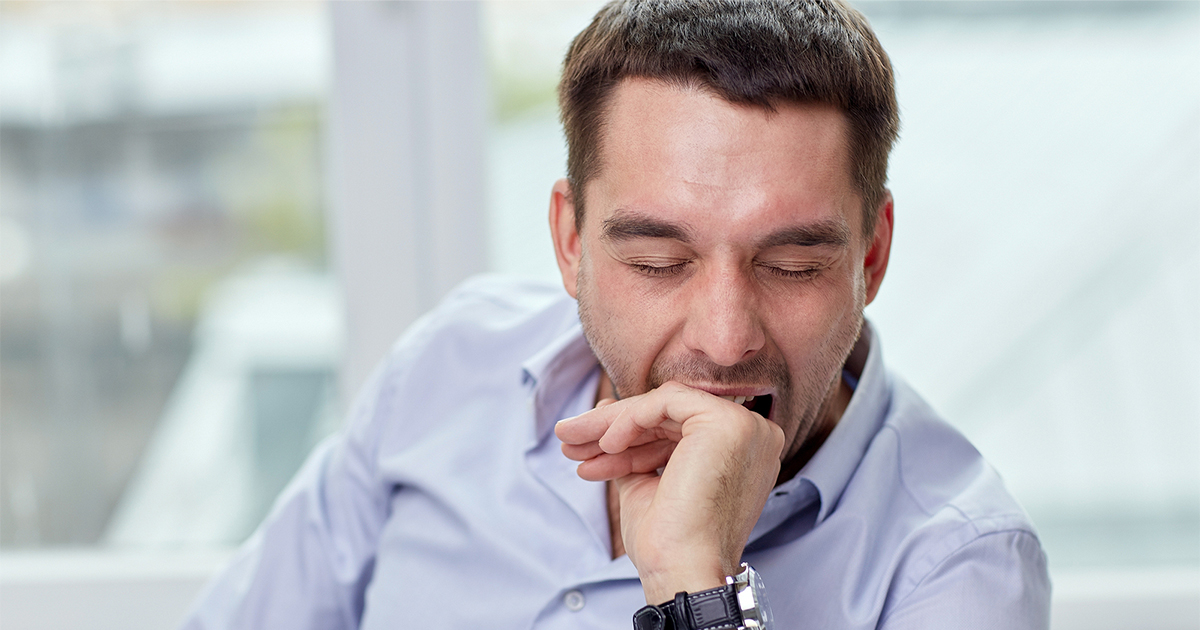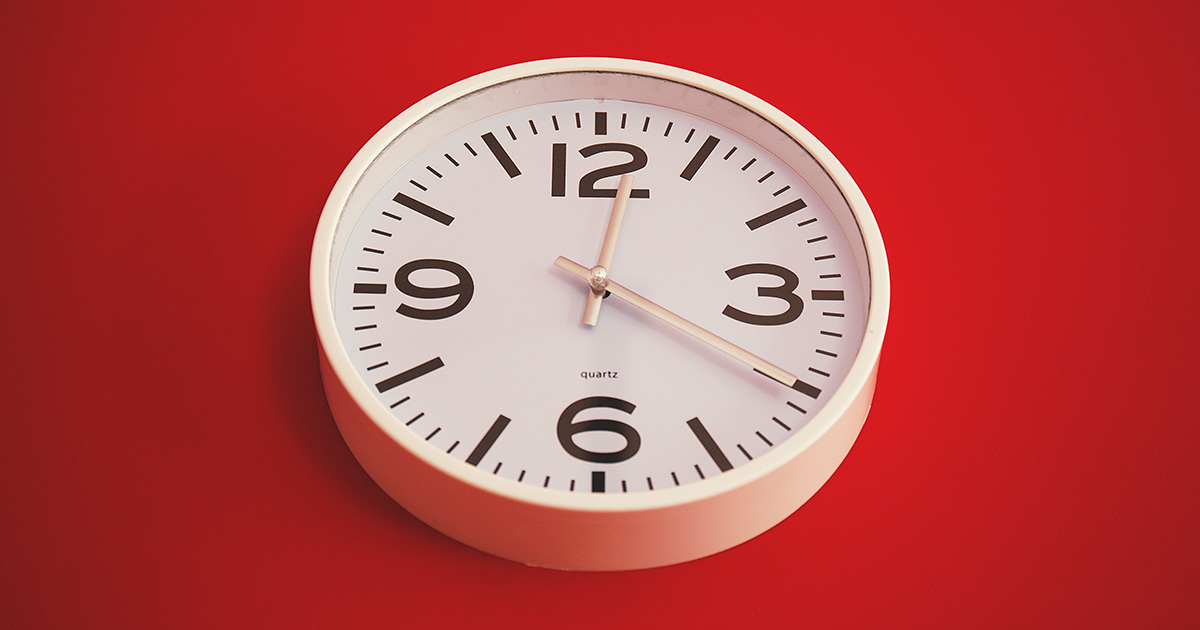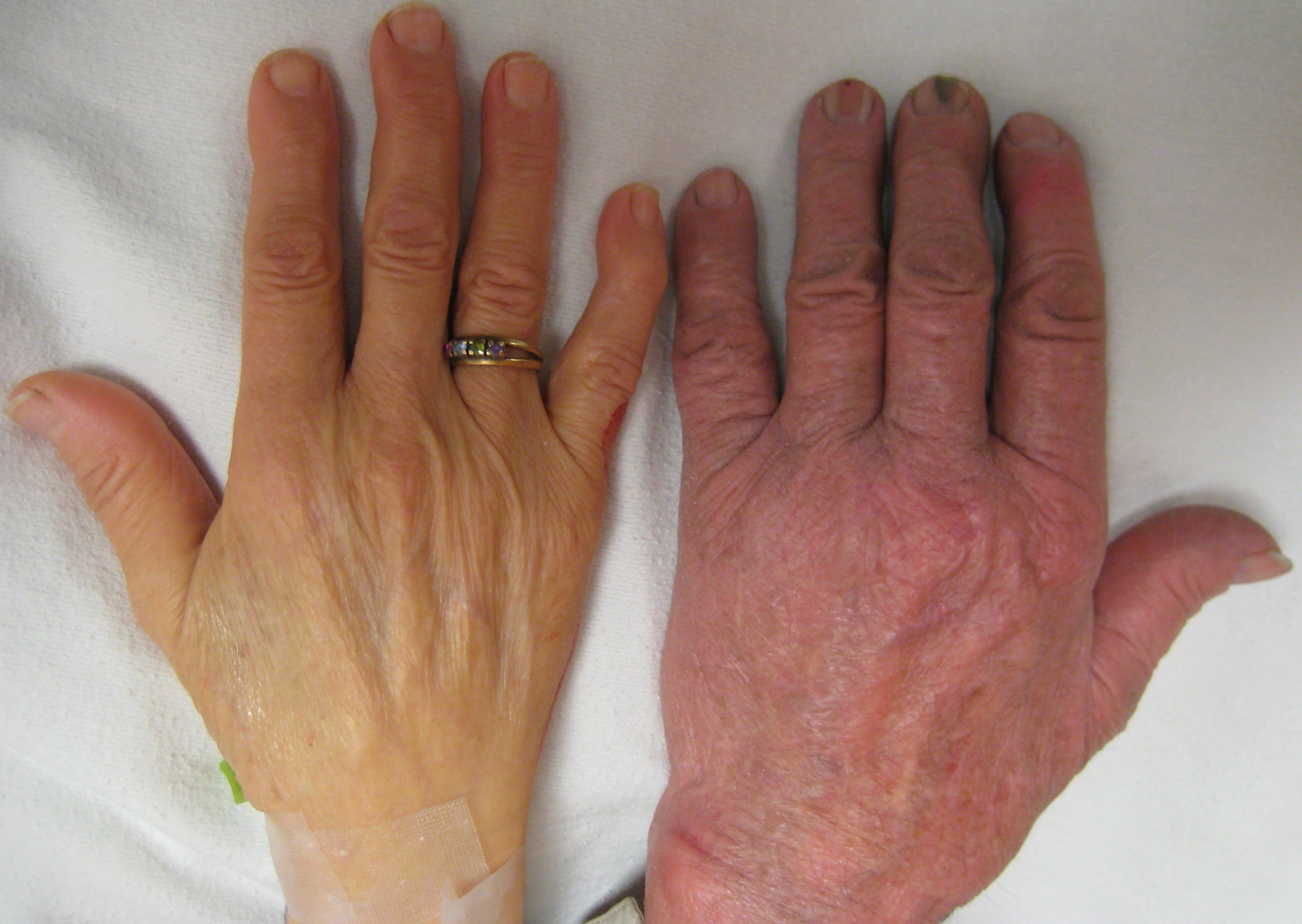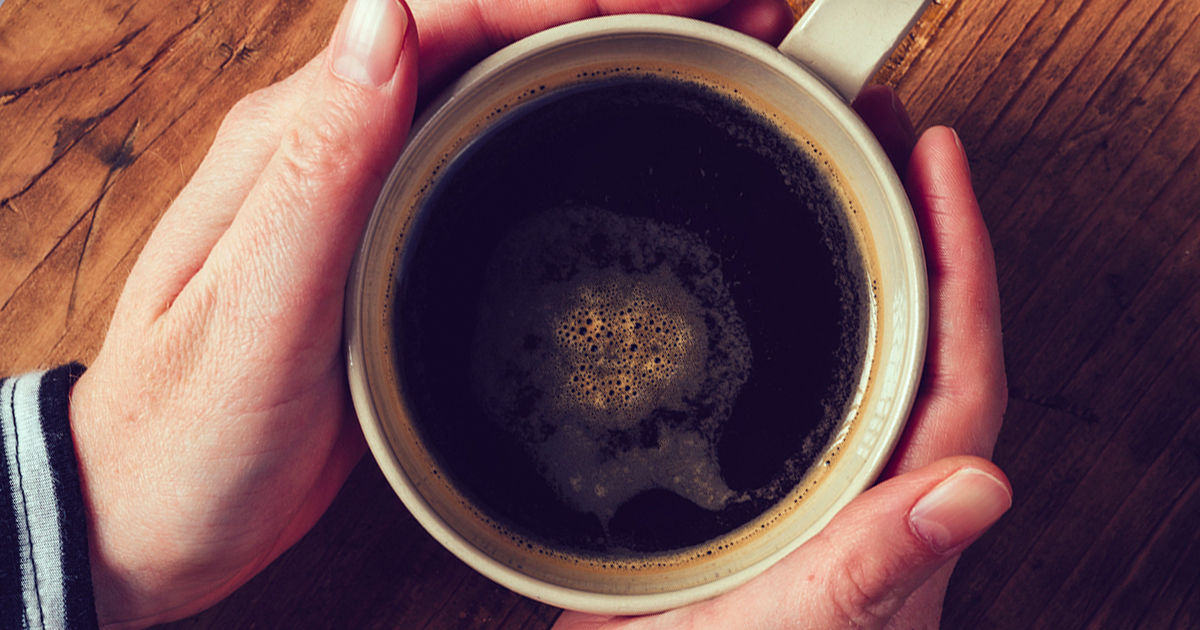5 Medical Reasons You Can Feel Exhausted Even After a Good Night's Sleep

By:
It's hard to enjoy or achieve much of anything when you're exhausted. Many of us aren't getting enough sleep — one in three Americans is sleep deprived, according to the CDC. But there are other medical reasons you may feel pooped.
 BigStock/dolgachov - bigstockphoto.com
BigStock/dolgachov - bigstockphoto.com
Researchers have only recently begun to investigate why many well-rested people experience daytime tiredness, the New Scientist reported.

Here are 5 reasons fatigue can hit even when you've had a full eight hours of sleep.
1. You're sleeping the wrong way.
You may suffer from poor-quality sleep as a result of disruptions to your natural cycle, according to Smith College neuroscientist Mary Harrington, who is conducting research into the matter, the New Scientist reported. Poor sleep can result from inappropriate exposure to light: Too much at night, not enough during the day.
The key is the suprachiasmatic nucleus, an area of your brain that regulates your circadian cycle and controls hormones linked to alertness, Harrington said.
 Pexels - pexels.com
Pexels - pexels.com
From the New Scientist:
"Under normal circumstances, the SCN orchestrates a peak in alertness at the start of the day, a dip in the early afternoon, and a shift to sleepiness in the evening.
"The amount of sleep you get at night has little impact on this cycle, says Harrington. Instead, how alert you feel depends on the quality of the hormonal and electrical output signals from the SCN. The SCN sets its clock by the amount of light hitting the retina, so that it keeps in line with the solar day. Too little light in the mornings, or too much at night, can disrupt SCN signals, and either can lead to a lethargic day."
"I think circadian rhythm disruption is quite common in our society and is getting worse with increased use of light at night," Harrington told the New Scientist.
Think your circadian clock is out of whack? Harrington advised exercise, spending 20 minutes outside each morning, and turning off bright screens by 10 at night.
 Bigstock/Daxiao Productions - bigstockphoto.com
Bigstock/Daxiao Productions - bigstockphoto.com
2. You may have iron deficiency anemia.
Iron deficiency anemia causes fatigue and weakness, as well as brittle finger nails, cold hands and feet, pale skin color, and other symptoms.
Iron deficiency anemia is a condition that prevents your body from producing hemoglobin — the protein that allows red blood cells to carry oxygen from your lungs throughout your body, the Mayo Clinic said.

The condition is significantly more common among women than men, a 2009 study in American Family Physician found. Black and Mexican-American women are especially susceptible to it, the study found.
Women with heavy periods are also susceptible to the deficiency, the U.K. National Health Service reported.
Blood loss from injuries or internal bleeding due to ulcers, cysts, and cancers can also cause iron deficiency anemia, according to the National Institutes of Health.
Eating habits can factor in as well. Meat, poultry, and fish are some of the most iron-rich foods, the NIH added.
 Stocksy/Ina Peters - stocksy.com
Stocksy/Ina Peters - stocksy.com
Iron supplements can be useful if you aren't a meat-eater, though spinach, tofu, and beans are also good iron sources.
3. You may be dehydrated.
If you feel tired after a cup of coffee, it might not be because you've accidentally sipped a decaf. Dehydration caused by caffeine's natural diuretic effects can make you feel fatigued.
 Bigstock/igor stevanovic - bigstockphoto.com
Bigstock/igor stevanovic - bigstockphoto.com
"By the time the caffeine wears off, your hydration levels may be in the tank, and the double whammy of caffeine withdrawn and dehydration can take a serious sleepy toll," Wellness Nutrition Services Cleveland Clinic Manager Kristin Kirkpatrick told Men's Fitness.
A small 2012 study published in the Journal of Nutrition also linked fatigue to dehydration, crankiness, and difficulties focusing in women. "Although men weren’t included in the research, the results likely apply to them as well," Time reported in a piece on the research.
 Keoni Cabral/Flickr - flickr.com
Keoni Cabral/Flickr - flickr.com
But it's not easy to be dehydrated, the New Scientist reported. "A 2 percent drop in hydration is enough to make us feel thirsty, so if we drink normally, we shouldn't get dehydrated very often, and it probably isn't necessary to force down gallons of the stuff."
4. You may suffer from inflammation.
Obese people are prone to chronic inflammation, which releases cytokine proteins into the bloodstream, stimulating the immune system and draining your energy, the New Scientist reported.
Inflammation doesn't just affect the obese. It can also be caused by poor diets, stress, smog exposure, and a sedentary life, Women's Health Magazine reported.
Aerobic exercise helps alleviate fatigue caused by inflammatory cytokines, according to a 2015 study. Omega-3 fatty acids and antioxidant-rich foods are also widely thought to fight inflammation.
5. You may be depressed.
Most people diagnosed with depression experience fatigue as a result, Harvard Medical School Psychiatry Professor Maurizio Fava said in a 2011 interview in Innovations in Clinical Neuroscience.
 Stocksy/Aleshyn_Andrei - stocksy.com
Stocksy/Aleshyn_Andrei - stocksy.com
"Fatigue is one of the identified symptoms of MDD listed in the 'Diagnostic and Statistical Manual of Mental Disorders, Fourth Edition (DSM-IV)' criteria, where it is defined as physical fatigue or loss of energy. However, in my opinion, fatigue is much more than that. We see apathy and considerable emotional disturbance occurring as a consequence of fatigue. We have also seen high rates of diminished focus, word-finding difficulties, and recall problems in fatigued patients with MDD."
Fatigue can prolong bouts of depression, and certain antidepressants can exacerbate this particular symptom, Fava said. The low dopamine and reduced serotonin levels associated with depression can make it particularly difficult to push through fatigue, the New Scientist reported.
People experience daily fatigue for a variety of reasons — which certainly is not pleasant, and worth addressing.
But it's worth noting that ordinary fatigue is quite different from chronic fatigue syndrome, or myalgic encephalomyelitis.
Chronic fatigue syndrome is a perplexing medical mystery that doctors are still working to understand and treat, The Washington Post reported. A new study in the Proceedings of the National Academy of Sciences suggested that CFS may be similar to the phenomenon of hibernation in some animal species.
CFS involves extremely severe fatigue and joint pain that can make even basic activities such as walking or sitting up excruciating. "The hallmark symptom of the illness is that exertion can make patients much, much worse," Julie Rehmeyer, who has CFS, wrote in Slate.
If you're still not sure why you're tired, take a nap.
More specifically, try to mimic the sleep latency test used in to diagnose sleep disorders, the New Scientist said. This involves lying down somewhere quiet and trying to fall asleep. If 15 minutes pass, and you still feel tired but haven't drifted off, you may have fatigue that's unrelated to a lack of sleep.
 Stocksy/Jovo Jovanovic - stocksy.com
Stocksy/Jovo Jovanovic - stocksy.com
